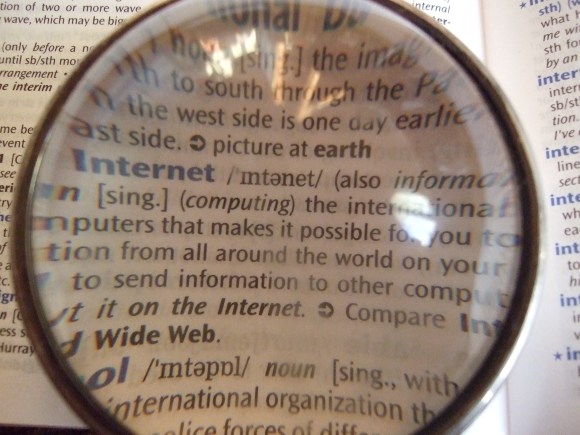 In the second half of 2014, the Wikimedia Foundation received hundreds of requests from governments, individuals, and organizations to disclose nonpublic user data and remove content from the Wikimedia Projects. Only three requests were granted. Photo by Booksworm, freely licensed under CC-BY-SA-3.0.
In the second half of 2014, the Wikimedia Foundation received hundreds of requests from governments, individuals, and organizations to disclose nonpublic user data and remove content from the Wikimedia Projects. Only three requests were granted. Photo by Booksworm, freely licensed under CC-BY-SA-3.0.
We are pleased to announce the release of our biannual update to the Wikimedia Foundation’s Transparency Report. Transparency has always been core to our mission, and last year’s first-ever report was a step forward in achieving even greater openness for the Wikimedia community of users. This year’s report details how, of the 201 content and copyright takedown requests we received from July through December 2014, only three were granted.
As supporters of the world’s largest free knowledge resource, the Wikimedia Foundation regularly receives requests from governments, individuals, and organizations to disclose nonpublic user data and remove content from the Wikimedia Projects. These requests often conflict with our mission of making the sum of all knowledge freely available to everyone, and our commitment to protecting user privacy. Our Transparency Report documents these requests, their origins, and how we responded to them.
The first report published in August 2014, which covered requests from July 2012 through June 2014, documented how we complied with none of the 304 general content removal requests received during this time. The current update continues this practice with fresh numbers. We’ve also highlighted new, interesting stories from this period and have included even more information about the requests we’ve received. The report now documents which government entities made requests for user data, sheds light on requests made under the European Union’s so-called “right to be forgotten,” and discusses our infrequent voluntary information disclosures during emergency situations.
The recently released report focuses on three key areas: :
- Content alteration and takedown requests. Of the 190 general content removal requests, only one was granted by staff at the Wikimedia Foundation. We receive relatively few content removal requests because of the vigilance of the Wikimedia user community, which often works to address legitimate concerns dealing with issues like content accuracy, Wikipedia policy compliance, and potential copyright infringement. However, when we do receive such requests, we defend against them vigorously — maintaining open and neutral platforms means resisting attempts to censor users. It is the users who decide what content belongs on Wikimedia projects. We therefore strongly encourage complaining parties to engage with the user community instead of resorting to unproductive legal threats.
- Copyright takedown requests. Of the 11 Digital Millennium Copyright Act (DMCA) requests received, only one was granted. Wikimedia users, many of whom are copyright holders themselves, remain instrumental in ensuring that Wikimedia projects comply with copyright laws. As a result, we receive very few DMCA requests. For the occasional DMCA notices we do receive, however, we conduct a thorough evaluation and only remove infringing content if the request is valid.
- Requests for user data. Of the 28 user data requests received, only one has resulted in disclosure of nonpublic user information. We carefully review every request we receive to ensure that it is legal and meets our standards. We reject those that don’t. And often, we do not have any information to give. As part of our commitment to user privacy, Wikimedia collects little nonpublic user information, and retains that information for a short amount of time.
We invite you to learn more about our efforts to protect user privacy and the integrity of the Wikimedia projects at https://transparency.wikimedia.org/.
Michelle Paulson, Senior Legal Counsel*, Wikimedia Foundation
Geoff Brigham, General Counsel, Wikimedia Foundation
* This transparency report would not have been possible without the help of many individuals, including: Moiz Syed, Prateek Saxena, Jacob Rogers, James Buatti, Aeryn Palmer, Katherine Maher, Jove Oliver, James Alexander, and Patrick Earley.

Can you help us translate this article?
In order for this article to reach as many people as possible we would like your help. Can you translate this article to get the message out?
Start translation